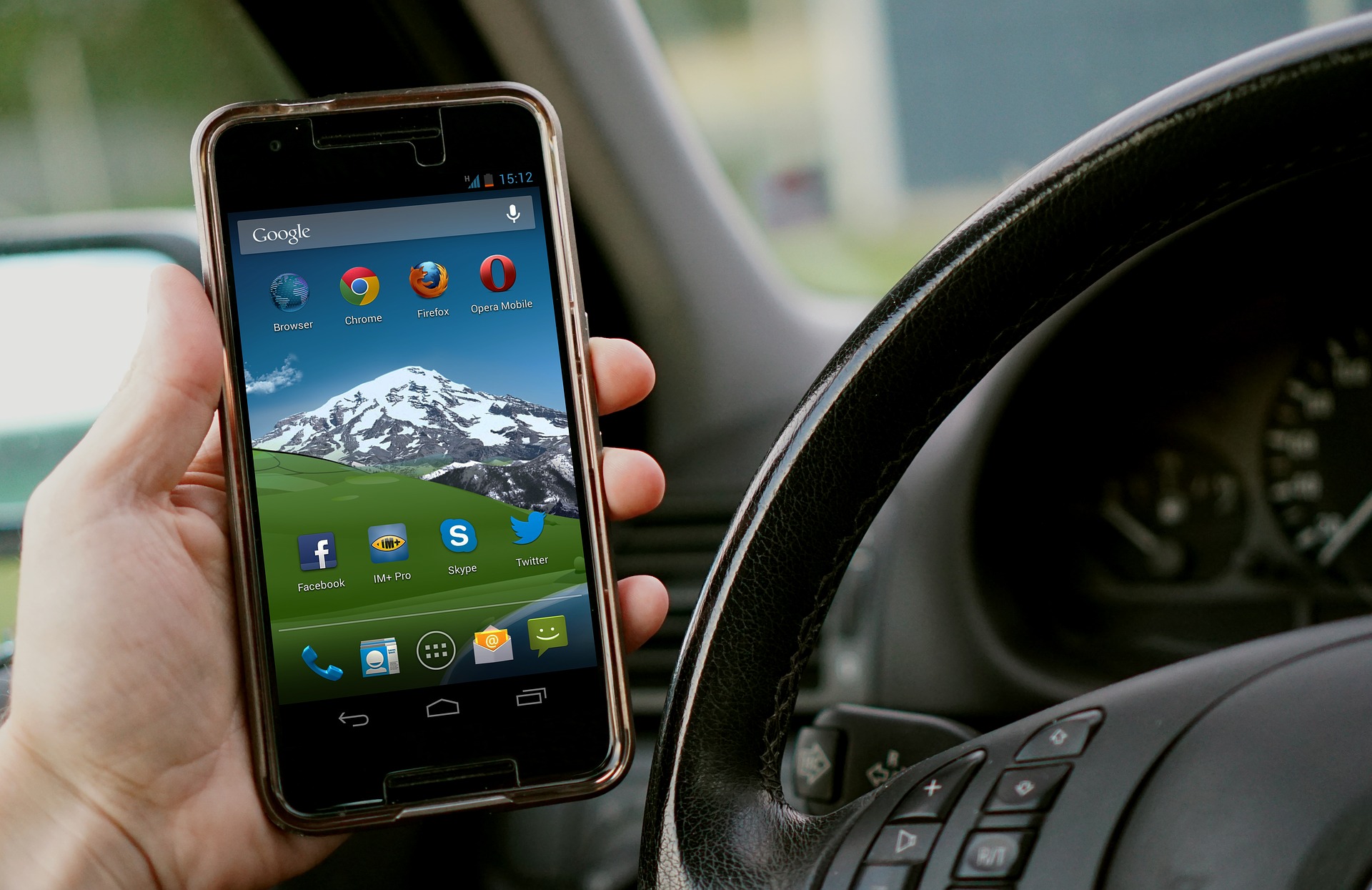In 2018, not a day goes by that we don’t use technology. With the cars we drive, the phones we use, the watches on our wrist, technology seems to be in the air we breathe! Add on using the newest filters on Snapchat and Instagram, to sending text messages or answering phone calls, and technology can become extremely dangerous for drivers. The National Highway Traffic Safety Administration (NHTSA) reports that approximately 660,000 people are using their cell phones while driving, daily! And, a National Highway Traffic Safety Administration (NHTSA) report from 2015 found that, “there were 3,477 people killed and an estimated additional 391,000 injured in motor vehicle crashes involving distracted drivers.”
That is why readers should know that April is Distracted Driving Awareness Month! It’s important for drivers everywhere to be reminded about the serious dangers that distracted driving poses, because, the kicker is that all distracted driving car accidents and distracted driving accident fatalities are completely preventable! The National Safety Council (NSC) warns us that, “Each death is 100% preventable. From cell phones to dashboard infotainment systems to evolving voice command features – all pose a threat to our safety. Just one second of your attention is all takes to change a life forever.”
Cell phones are the number one suspect that comes to mind when thinking of distracted driving car accidents. In particular texting and driving is a big cause of distracted driving car accidents. In 2015, a survey of Michigan drivers found that 41% of young adults between the ages of 20-30 have admitted to texting and driving on a regular basis! 26% even admitted to texting and driving on a daily basis! Coincidentally, the State of Michigan reported that, “There were 7,516 crashes in Michigan during 2015 involving distracted driving, resulting in 28 fatalities and 3,472 injuries. Cell phones were involved in 753 crashes, with three fatalities and 377 injuries."
No matter the distracting device however, whether it be cell phones, headphones, or smartwatches, any electronic device can impair driving. It might not seem like a big deal to see if you received a text message or a news update when your phone pings, after all, you’re just seeing what type of notification it is and don’t plan to read the text or the news blurb. However, engaging in such a seemingly harmless distraction while driving can lead to a car crash. In fact, the NHTSA says that looking down at a phone for five seconds driving at 55mph is like driving the length of a football field, blindfolded!
Unfortunately distracted driving isn’t just caused by using electronic devices. Changing the radio station because Nickelback is playing, driving with one hand on the wheel and one hand carrying a Big Mac to your mouth, or quickly reaching over to pick up Elmo after your kid dropped him, can all be distracted driving actions that can lead to serious car accidents. While these types of distracted driving habits have always existed, distracted driving has evolved in the age of social media. It’s not just about calling or texting someone while driving, but about applying the cutest camera filter for a behind-the-wheel selfie, or even checking Twitter to see what’s trending, or going on Facebook to see how many likes a post has gotten.
The number of distracted driving car accidents and distracted driving fatalities are scary enough to make people want to throw their phone out of a car window, but that’s not practical. Our society can no longer function without the easy communication and quick internet access cell phones provide us. Many people even see cell phones as an extension of their body, like another limb even. Therefore, it’s unreasonable to tell people to leave their phones at home when they plan to drive. Rather than facing that horrifying ultimatum, the public should be made aware of less drastic ways to prevent distracted driving. For example, some tech companies have invented apps, and even programs in their operating systems to prevent distracted driving car accidents. As previously reported by The Michigan Law Firm, PC, apps like Groove, and phone lock out programs like Apple’s Do Not Disturb While Driving mode, help prevent distracted driving car accidents.
Some organizations like AT&T have launched sponsorships like the It Can Wait pledge, to end distracted driving. With over 24 million pledges to stop distracted driving, It Can Wait has become one of the most popular anti-distracted driving organizations. It Can Wait has even created a virtual reality simulator that allows users to experience the dangers of texting and driving and shows how using a cell phone while driving truly impacts ones vision. It Can Wait also wants their users to take the pledge today, to stand up to distracted driving, and to become an activist who says ‘No’ to using a distracting device like a cell phone, to prevent car accidents, and to save lives. The organization, as previously reported by The Michigan Law Firm, also launched their DriveMode application that helps minimize cell phone distractions while driving.
Distracted driving car crashes happen daily due to texting and driving, eating and driving, taking pictures and driving, and from engaging in any activity that causes drivers to not pay 100% attention to the road. If you or anyone you know has been involved in a car crash caused by a distracted driver, call The Michigan Law Firm, PC at 844.4MI.FIRM. Our experienced accident attorneys offer free consultations to victims of car accidents.












